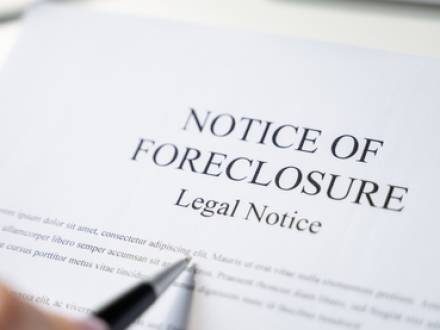1512 Artaius Parkway, Suite 300,
Libertyville, IL 60048
Call for a FREE Phone Consultation
847-549-0000
Video Consultations Also Available
 Spanish
Spanish Cantonese
CantoneseServing Clients Across 7 Illinois Locations
Can Foreclosure Affect an Illinois Reverse Mortgage?
 Increasingly, older Americans are choosing reverse mortgages, typically to supplement fixed incomes from Social Security or pensions that are insufficient to cover basic expenses. A reverse mortgage allows elderly homeowners to tap into the equity built up in their homes while remaining in their homes. Reverse mortgages are often used to pay for home repairs, improvements, and maintenance, or to cover substantial medical expenses.
Increasingly, older Americans are choosing reverse mortgages, typically to supplement fixed incomes from Social Security or pensions that are insufficient to cover basic expenses. A reverse mortgage allows elderly homeowners to tap into the equity built up in their homes while remaining in their homes. Reverse mortgages are often used to pay for home repairs, improvements, and maintenance, or to cover substantial medical expenses.
Reverse mortgages can be complex and expensive when all the fees are taken into account. The loan becomes due when the borrower dies, sells the home, or permanently relocates. If the borrower dies, the heirs will need to sell the house and repay the loan. What many people are unaware of is that there are a number of triggering events that can lead the lender to declare the loan "due and payable" and begin initiating foreclosure proceedings, while you are still living in the home.
It is important that you have a solid understanding of your rights should your reverse mortgage become due and payable, as well as any potential safeguards in place that can prevent foreclosure. An experienced Round Lake, IL foreclosure defense attorney can help you determine what your options are and which option will have the best possible outcome.
Events that Can Trigger "Due and Payable," and Potentially a Foreclosure
Certain events can trigger a reverse mortgage to become due and payable, potentially leading to foreclosure. These events include:
- You no longer live in your home on a permanent basis (i.e., you have moved out permanently).
- You have let your property taxes or homeowner’s insurance lapse.
- You have failed to maintain your home in good repair.
- The primary borrower has died, and there is no co-borrower or eligible non-borrowing spouse.
- You have been absent from your home for six to 12 consecutive months.
Additional Information Regarding Reverse Mortgage Foreclosures
Reverse mortgages, unlike traditional mortgages, are usually not eligible for loan modifications to prevent foreclosure. There may, however, be certain foreclosure loss mitigation options, including deed-in-lieu-of-foreclosure.
If your reverse mortgage is a Home Equity Conversion Mortgage (HECM), foreclosure guidelines are set by the U.S. Department of Housing and Urban Development (HUD). Borrowers or heirs may be given up to six months to repay, sell, or apply for an extension granted by HUD. If the foreclosure proceeding is unresolved, foreclosure can proceed.
What Are Your Options to Avoid or Delay Foreclosure of Your Reverse Mortgage?
First, it is important to proactively communicate with your reverse mortgage loan servicer. If the loan servicer offers a repayment plan, check to see if you qualify. A HUD counselor or a foreclosure attorney can provide more extensive advice, but the most common options for dealing with a foreclosure on a reverse mortgage include:
- Sell your home and pay off the reverse mortgage loan.
- Pay off the debt with cash to eliminate the reverse mortgage, and keep your property.
- Request a three-month extension during the foreclosure (borrowers can request two three-month extensions).
- Consider a deed-in-lieu of foreclosure, which essentially transfers your home to the reverse mortgage lender, avoiding a lengthy foreclosure process.
- Some reverse mortgages have a Life Expectancy Set Aside (LESA), which sets aside a portion of the loan proceeds to cover future property taxes and insurance costs. If your trigger event is non-payment of property taxes or insurance, and your reverse mortgage has a LESA, you may be able to catch up on any arrears and avoid foreclosure.
Contact a Lake County, IL Foreclosure Defense Lawyer
If you are facing a foreclosure of your home, whether from a reverse mortgage or any other reason, the best step you can take is to consult with an experienced Waukegan, IL foreclosure defense attorney from Newland & Newland, LLP. Facing foreclosure is extremely stressful, and in some situations, the consequences can be swift.
When you partner with a knowledgeable foreclosure defense attorney, we will do everything in our power to protect your home, your independence, and your legacy. Our attorneys are local to Illinois and always prioritize our clients and communities. We have decades of experience among our attorneys. Call 847-549-0000 to schedule your free consultation.
 Stop Foreclosure
Stop Foreclosure




















